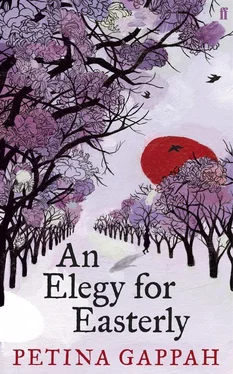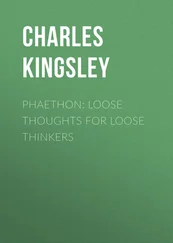Petina Gappah - An Elegy for Easterly
Здесь есть возможность читать онлайн «Petina Gappah - An Elegy for Easterly» весь текст электронной книги совершенно бесплатно (целиком полную версию без сокращений). В некоторых случаях можно слушать аудио, скачать через торрент в формате fb2 и присутствует краткое содержание. Год выпуска: 2009, Издательство: Faber & Faber, Жанр: Современная проза, на английском языке. Описание произведения, (предисловие) а так же отзывы посетителей доступны на портале библиотеки ЛибКат.
- Название:An Elegy for Easterly
- Автор:
- Издательство:Faber & Faber
- Жанр:
- Год:2009
- ISBN:нет данных
- Рейтинг книги:4 / 5. Голосов: 1
-
Избранное:Добавить в избранное
- Отзывы:
-
Ваша оценка:
- 80
- 1
- 2
- 3
- 4
- 5
An Elegy for Easterly: краткое содержание, описание и аннотация
Предлагаем к чтению аннотацию, описание, краткое содержание или предисловие (зависит от того, что написал сам автор книги «An Elegy for Easterly»). Если вы не нашли необходимую информацию о книге — напишите в комментариях, мы постараемся отыскать её.
An Elegy for Easterly — читать онлайн бесплатно полную книгу (весь текст) целиком
Ниже представлен текст книги, разбитый по страницам. Система сохранения места последней прочитанной страницы, позволяет с удобством читать онлайн бесплатно книгу «An Elegy for Easterly», без необходимости каждый раз заново искать на чём Вы остановились. Поставьте закладку, и сможете в любой момент перейти на страницу, на которой закончили чтение.
Интервал:
Закладка:
Unlike those poor sods who have found that their cherished degrees are useless in this new economy, I at least have not fallen too far off my track. I am using the skills I honed as an insurance man in the eighties and nineties. My ex-brother-in-law used to say I could sell dental floss to his mother-in-law — the woman had fewer teeth than a hen.
It is not just fuel either. I am what you might call an all-commodity broker: if it can be bought, it can be sold, and if it can be sold, I am your man. I have bought and resold computers that the President donated to rural schoolchildren in Chipinge during the last election campaign — they don’t need them after all, their schools have no electricity. I have sold reconditioned cars from Japan and Singapore, flat-screen televisions from Dubai, sugar and salt and children’s toys from South Africa. I have even sold water-purifying chemicals from Malaysia to the City Council of Kwekwe. All goods processed, no questions asked. No guarantees, no returns, no refunds. No wire transfers, no credit cards — as the sign at the Why Not Hotel, Esigodini says, Mr Credit Was Killed By Mr Cash.
Last year, I sold my biggest item yet: a John Deere combine harvester which came down to me from some poor white bastard who had been compelled to donate his land for redistribution by the magnanimous Comrades. When the Comrades redistribute the land, they also make sure to redistribute any crops on the land, all machinery, any furniture, plates, knives and forks, and any whisky that might be in the house.
So that’s how a lucky Comrade got a free combine harvester and having no need for it in urban Warren Park, he sold it to me for only one and a half trillion. I sold it for at least a hundred times that amount, got US dollars too, which I sold on at a healthy profit, and that is how I was able to buy a third-hand RAV4 for the wife, pay three lots of school fees in one go and get the girlfriend a four-day weekend at Vic Falls and all the one hundred per cent human hair (made in Taiwan) that she could buy.
I was musing on all these deals as I crossed the field that divides Tynwald from Ashdown Park and walked to the corner of Eves and Ashdown Drive. I thought I might get a lift to town here. I bought an Everest from a vendor who had set up a stall at the corner. As I lit my cigarette, I was almost run over by a huge silver Prado that screeched to a halt beside me. The driver jumped out leaving his door open, and bought a couple of cigarettes from the vendor.
I was about to say something to him when I was distracted by the music coming from his car. I would know that riff even in the pits of hell. The Eagles. ‘Hotel California’. The music poured from his car and into Ashdown Drive. My rage went away in an instant. I laughed hard. The young man and the street vendor looked at me. They were joined in their curiosity by three men who had been waiting for transport to town. It is not every day a man goes mad at the corner of Eves and Ashdown Drive. Their baffled faces made me laugh harder, and buckled by the strength of my laughter, I doubled over.
Ko ndeipi blaz? the Prado driver asked.
You will not believe me if I tell you, I said.
Try me, he said.
Now here was an opportunity.
I will only tell you if you give me a lift to town, I said. I nodded towards the other three. Give all of us a lift and I will tell you the best story you have heard your whole life.
One mita each, he said.
I summoned the three who clambered into the car. I got into the passenger seat. We handed over a million dollars each to our driver and drove off in the final blasts of the Eagles. As we drove down Harare Drive, I told them about the time, back in the swinging nineties, when Zimbabwe was still Zimbabwe and I had spent a night at the Hotel California.

My hero as a child had been Paul Mkondo; that song from his money programme had been the theme song of my youth. He was everything I wanted to be, and so it was only natural that I associated the insurance business with money, and sought to make my fortune in that line. As an insurance salesman, I was successful because I had hit on the bright idea of sticking mainly to the small towns that most salesmen avoided. Not for me Harare and Bulawayo, or Gweru and Kwekwe, Mutare and even extended villages disguised as towns like Marondera. There were any dozen insurance sellers here. I frequently turned my Datsun Bluebird towards the small mining areas and tiny towns, not quite going to the rural areas, but skirting them, Kamativi and Karoi, Esigodini and Hwange.
I made a surprisingly steady sale; you would be amazed at the number of miners and small-town teachers in those days that had money stashed under pillowcases, and whom I managed to persuade to give a little of it to insurance. I sold protection in a suitcase, with just a signature on the dotted line, I secured futures, one copy for you, and two for the file. There was another bonus, the many lonely housewives I encountered. And there was nothing like driving the long lonely stretches of road with nothing but myself for company and the Bhundu Boys on the stereo.
On one such occasion, at about seven in the evening, I came to Kamativi. I thought I would surprise Mabel, one of my women. I had not seen her since I last came to Kamativi four months before this when her husband had been at his mine job. A bed for the night, and, if I knew Mabel, a half night of pleasure awaited me, and I was filled with anticipation. I scrounged around to see what I could bring her, and managed to find two warm bottles of lager in the boot of the Datsun. My condoms were in my briefcase as usual and I carried everything to the house, together with a couple of newspapers. That would have to do, and, parking my car, I made my way towards the house.
Even before I could knock, there was her husband, short in stature but large in suspicion. And behind him, Mabel, a tall woman, who seemed suddenly reduced, simpering and smiling and looking everywhere but at me. A woman with half a brain would have said I was an uncle, or a cousin, but she left me to my own devices.
I was left with nothing but my wits and ready tongue.
I am selling insurance, I said.
What kind of insurance is it that is sold in pitch darkness, he asked.
It is only that I know your wife, I said.
My wife, he said, how do you know my wife?
I mean to say, I met your wife, I corrected.
And where exactly did you meet my wife, he asked.
I was here earlier selling insurance, and she said she could not make such an important decision without you being here, and so I thought I would come later.
In the end, it was the newspapers that I carried under my arm that did it, it was Kwayedza , the local-language newspaper that always had an intoxicating mix of stories of witchcraft and adultery all delivered in the moralising tone that you associated with your oldest aunt. ‘ Kitsi Yakapfekedzwa Sekacheche ’, said the headline of the day, ‘Little Kitten Found Dressed as a Baby’, and I could see my woman’s man flicking his eyes towards it. I had a couple of other papers in the car, and I offered him these now, and also mentioned the two warm beers. This was all the oil that was needed to grease my way in. I had noticed before as I travelled to these remote parts of the country that the best way to a man’s confidence was to offer anything printed, a book, a newspaper, a Watchtower pamphlet. I had made many friends by simply allowing someone, sometimes as many as six people, to read a newspaper over my shoulder. His eyes positively glinted at the wealth I presented him, for in addition to Kwayedza , I had in my car the Daily Gazette, Parade and Horizon .
Читать дальшеИнтервал:
Закладка:
Похожие книги на «An Elegy for Easterly»
Представляем Вашему вниманию похожие книги на «An Elegy for Easterly» списком для выбора. Мы отобрали схожую по названию и смыслу литературу в надежде предоставить читателям больше вариантов отыскать новые, интересные, ещё непрочитанные произведения.
Обсуждение, отзывы о книге «An Elegy for Easterly» и просто собственные мнения читателей. Оставьте ваши комментарии, напишите, что Вы думаете о произведении, его смысле или главных героях. Укажите что конкретно понравилось, а что нет, и почему Вы так считаете.












